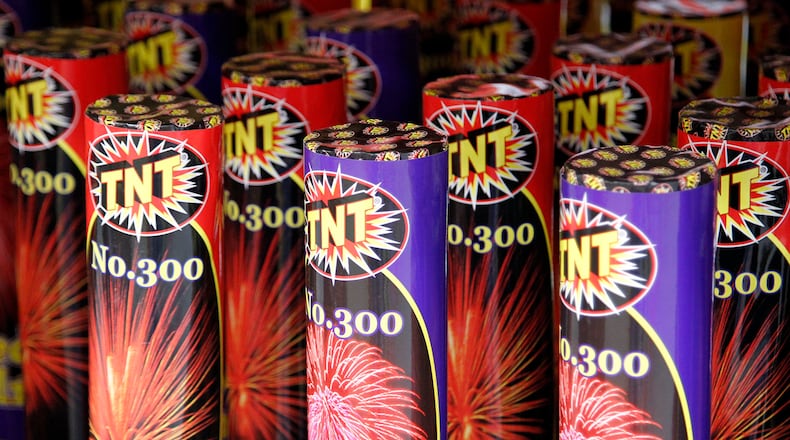Currently, Ohioans can purchase fireworks, but can’t possess or discharge them within the state. Illegal possession or discharge of fireworks is a first-degree misdemeanor carrying up to a $1,000 fine and six months in jail for first offenses.
A version of the bill ― House Bill 253 ― passed in the Ohio House in June, and would make it legal for people to set off consumer grade fireworks on their own property at anytime of day year-round. The measure passed in the House 77-17.
But during Wednesday’s hearing, state Sen. Dave Burke, R-Marysville, introduced an amendment, which the committee adopted. Burke’s amendment would limit the use of consumer-grade fireworks to a maximum of three days a year ― July 3, 4 and 5. It also proposes that local legislative bodies ― as opposed to the state ― pass fireworks laws or ordinances within their jurisdiction.
Local governments can then choose whether or not to make fireworks legal, the number of days and time it is allowed, and they can better enforce the law, according to Burke’s amendment.
“This is illegal by state law, that’s why no local jurisdiction enforces it,” he said, “because there’s no fine or retribution available to local entities upon enforcement, so that’s why nobody enforces it.”
In addition, Burke’s amendment proposes removing from HB 253 a provision that allows merchants to sell fountain fireworks devices in their stores. Fountain devices are massive fireworks that emit a large amount of sparks, and can make whistle or crackle sounds.
“All parties share the same concern that people are engaging in this activity today, and fire marshals can’t engage discussions in public safety because it is illegal,” Burke said. “As much as I grit my teeth on my own amendment, you can’t have these discussions unless the activity is legal, and I believe this amendment opens the doorway, albeit narrow, to start that discussion.”
Bruce Blom represents the Ohio Pyrotechnic Arts Guild and the Pyrotechnics Guild International, which are in favor of legalizing fireworks. In written testimony, he said both organizations have always stressed the importance of safety when handling fireworks. Although the pyrotechnics can be dangerous, people can enjoy them as long as they understand the inherent dangers and learn how to safely handle them.
“Putting our head in the sand and just saying, ‘No, not here in Ohio’ will not enhance the safety of Ohio residents, who will continue to purchase and use consumer fireworks, legally or otherwise,” Blom said. “The changes and recommendations contained within HB 253 are important first steps on a long overdue process to enhance trade and safety.”
Columbus-area resident Anthony S. Anselmo, who favors banning fireworks, said he experiences high anxiety, and he “absolutely” dreads July 4. Fireworks are a health issue for people with PTSD and other conditions, and for pets such as his parrots. It also puts a strain on first responders and hospitals because they have respond to fireworks injuries, Anselmo said.
“What about my rights?” he asked the senators.
It’s not clear at this time when the bill’s next hearing will be or when it will go to the senate floor. It would have to be reintroduced in the next legislative session if it doesn’t pass by the end of this year.
About the Author
